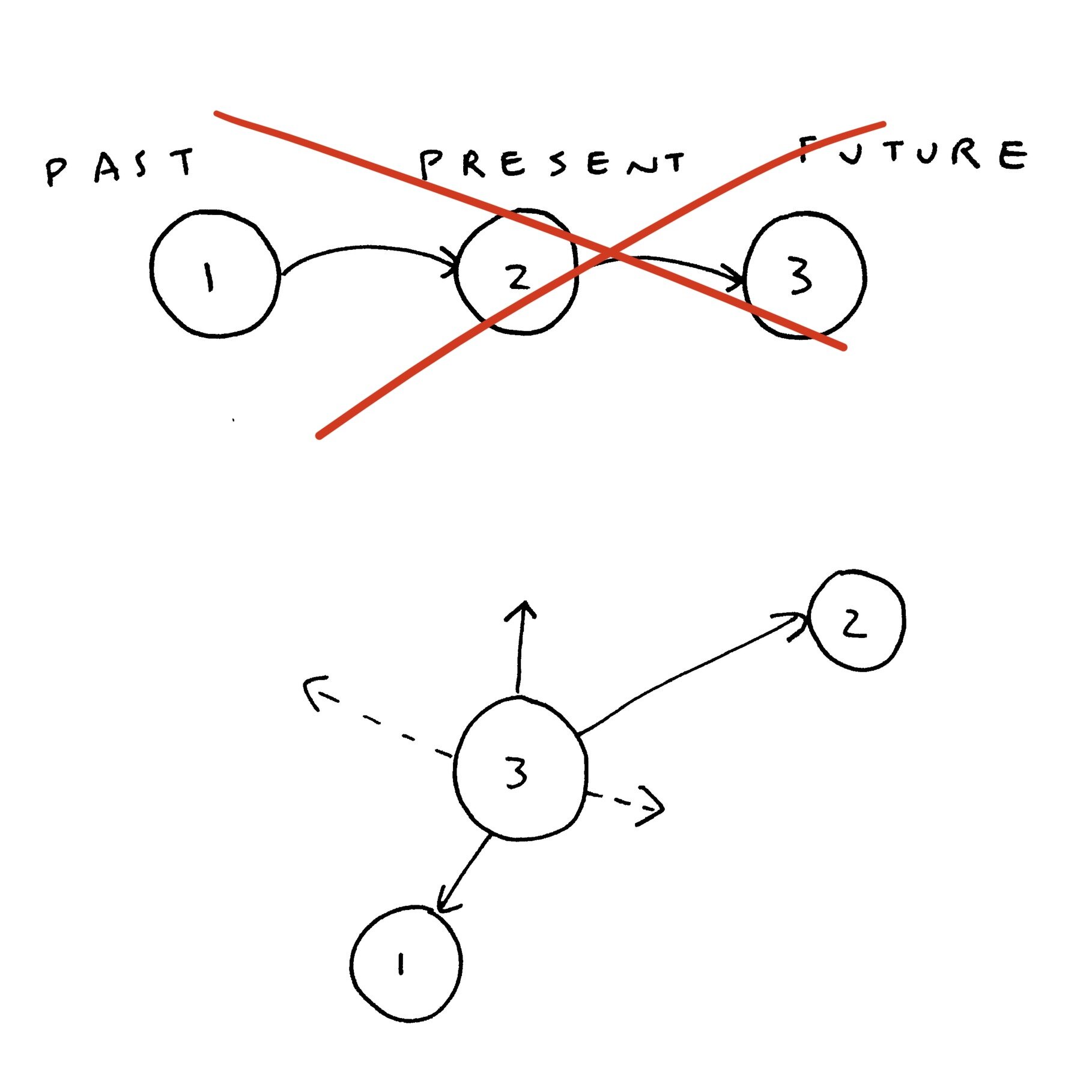Different perspectives of time and how to move beyond it (according to the rules of quantum mechanics)
When you travel to different places, whether that be different countries or different dimensions, you may notice that time gets treated differently everywhere you go. For instance, in Spanish speaking countries, time isn’t handled like a commodity. It isn’t something that can be “spent” or “saved”; it simply just passes by. Similarly, the further you move away from the solar system, the more “distorted” time becomes (as demonstrated by experiments in special relativity).
Upon contemplating the uncertain behaviors of electrons, physicist Itzhak Bentov coined this idea that there is an inverse relationship between space and perceived (or subjective) time; that is, the more you expand in space, the more time appears to slow down. As the very extreme end of the spectrum, occupying an infinite amount space, otherwise known as being omnipresent, is equivalent to experiencing a cessation of time. The next time you hear a spiritual person say, “the soul is eternal”, you can feel a sense of validation knowing that a scientist arrived at the same conclusion using graphs and other science stuffs.
In engineering, one can move from time domain to frequency domain by doing a Fourier Transform, which is a mathematical operation that decomposes a time-based signal into its frequency constituents. In the frequency domain, time is undifferentiated; one does not distinguish between past, present, and future. According to Nikola Tesla, if we want to understand the universe, we should think in terms of “energy, frequency, and vibration”. Having the capacity to view the world in terms of frequency gives us greater flexibility into how we view our own existence.
Most of modern day science is derived upon the causal determinism system of thought, which is the belief that the past determines the future. This framework of thinking shows up in all the self-help books which promote suffering in the present for sake of obtaining a future reward. In the world of quantum physics, however, causality is pretty much non-existent. Some physicists believe that there are multiple parallel realities that exist in the same space-time machinery as our own; this is known as the Many-Worlds Interpretation. A similar treatment of time is seen throughout Eastern teachings around mindfulness, which describe the past and the future as all being wrapped up into the present.
With all of that in mind, there are a couple of practical ways in which we can utilize this information to free ourselves from the perceived limitations of time. Here, I offer three examples of subtle shifts in beliefs from causal determinism to a new system which combines viewpoints from quantum physics and spirituality.
#1: The past determines the future.
Revised: The future can influence the past. Everything is influenced by the present.
#2: Everything that occurred in my life made me who I am.
Revised: Who I am created everything that occurred in my life.
#3: In order to reach my goals, I have to do X, Y, and Z.
Revised: I’ve already obtained everything I could ever want. I’m just going through the memories again to remember what I did.*
Physicist Max Tegmark came up with the analogy of how physical reality is like a movie written on a DVD - the past and future are frames that exist side-by-side on the same disc. If that's the case, the present moment is the only place where we have the ability to change the script.
*You can feel free to insert whatever explanation that makes you feel good. Have fun with this. You are, after all, the screenwriter of your own movie.
